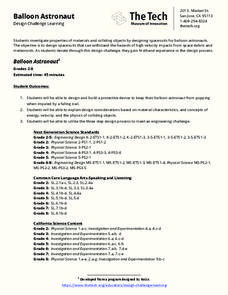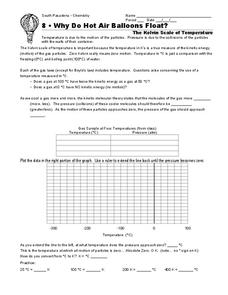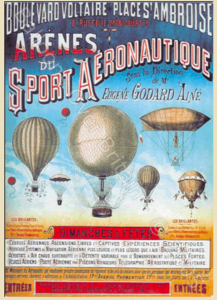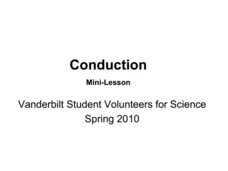Curated OER
Chemistry Module 2 - Specifications
A valuable resource provides a list of concepts that young chemists should grasp. The topics include energetics, kinetics, equilibria, redox reactions, and the halogen group. Employ this as a guide for your own curriculum planning, or a...
Tech Museum of Innovation
Balloon Astronaut
Design protection from high-speed particles. The STEM lesson plan highlights why astronauts need protection from space debris. Pupils use the design process to design, build, and test a spacesuit that will protect a balloon from a...
Curated OER
Falling into a Black Hole
In this black hole worksheet, students solve 3 problems given the equation used to determine the speed of a falling body using its mass, the constant of gravitation and the distance it will travel.
Curated OER
Kinetic and Potential Energy
In this kinetic and potential energy learning exercise, students read for information and evaluate comprehension. In this multiple choice and fill in the blanks learning exercise, students answer fifteen questions.
Curated OER
Heating/Cooling Curve
For this heating and cooling curve worksheet, learners use a given graph of a substance being heated from a solid to a liquid and then a gas over time. They use the graph to answer eleven questions about the phases of the substance and...
Curated OER
Black Holes...Hot Stuff!...VIII
In this black holes worksheet, students solve three problems about black holes using given equations for determining the temperature of the gases in a black hole and the visible light from the black hole at given temperatures.
Curated OER
Why Do Hot Air Balloons Float?
In this gases worksheet, students read about the Kelvin scale of temperature, they answer 3 fill in the blank questions about the relationship between temperature and pressure and they plot the temperature and pressure of gas samples at...
Curated OER
Magnetic Energy
In this magnetic energy worksheet, students are given the formula to calculate the magnetic energy of an object. They use the formula to solve for the magnetic energy of the Earth, a geotail, the Sun, and a solar prominence given their...
Curated OER
Student Exploration: Energy Conversions
In this earthquake exploration worksheet, students complete 3 prior knowledge questions, then use "Energy Conversions Gizmo" to conduct several activities, completing short answer questions when finished.
Curated OER
Energy
Young scholars distinguish between kinetic an potential energy. They recognize that energy is conserved when changing from one form to another. Students compare the scientific meaning of work with its everyday meaning.
Virginia Department of Education
The Rate of a Chemical Reaction
If your pupils think a catalyst is a list of their cats, then this might be the lesson plan for you! Young chemists study the effect of temperature, catalysts, concentration, and particle size on reaction rates during four different...
Urbana School District
Thermodynamics
Entropy, it isn't what it used to be. Presentation includes kinetic-molecular theory, heat and internal energy, thermal equilibrium, temperature scales, laws of thermodynamics, entropy, latent heat of fusion, specific heat, calorimetry,...
Curated OER
States of Matter
Students explore the states of matter. They discuss the different phrases of matter and categorize everyday substances as solids, liquids, or gases. Students explore the relationship between the phases on an atomic level and the role of...
Curated OER
Temperature and Thermal Energy
In this temperature learning exercise, students answer 8 questions about temperature and thermal energy. For example, "What term refers to an energy transfer that causes a change in temperature?"
Curated OER
Transition State Theory
For this transition state theory worksheet, students read about chemical reactions and the theory for how chemical reactions proceed. They answer questions about the activated complex, the activation energy and the collision theory all...
Curated OER
Practice Final
A full-fledged practice final prepares pupils for their general chemistry final exam. If they complete these 57 multiple-choice questions correctly, they will be well-prepared. Note: even though the questions are multiple-choice, there...
Science Geek
Gas Laws
A physical science presentation begins with an explanation of ideal gases and their behavior. Then it introduces all of the gas laws with descriptions and formulas.
Columbus City Schools
What’s Up with Matter?
Take a "conservative" approach to planning your next unit on mass and matter! What better way to answer "But where did the gas go?" than with a lab designed to promote good report writing, research skills, and detailed observation. The...
Rice University
College Physics for AP® Courses
Take a look at an organized physics course. The 34-section electronic textbook covers material in AP® Physics 1 and 2. Teachers use the text to supplement lectures and have the class work through the labs. Each section contains multiple...
Curated OER
Cosmic Rays
Pupils study cosmic rays and the energy behind them. In this atmospheric lesson students complete a cosmic ray telescope project.
Curated OER
Diffusion through Membranes
Students identify diffusion and its processes through experimentation and calculations. They also use a CBL and conductivity probe to measure the conductivity of various solutions and study the effect of concentration gradients on the...
Curated OER
Heat and Conduction
This simple activity is ideal for upper elementary learners when studying physical science. Using their sense of touch to describe how hot something feels, and then comparing their observations to thermometer measurements, they discover...
It's About Time
States of Matter: Solid, Liquid, and Gas
Solid, liquid, and gas: they all matter. Scholars create an animation of the various states of matter, experiment with the temperature of water as it changes states, and observe carbon dioxide as it changes states. The lesson also...
Virginia Department of Education
States of Matter
Scientists have been studying exothermic reactions before they were cool. The lesson begins with a discussion and a demonstration of heat curves. Scholars then determine the heat of fusion of ice and the heat needed to boil water through...

























